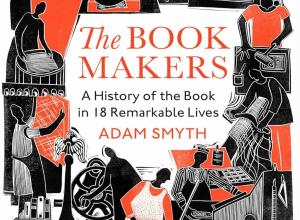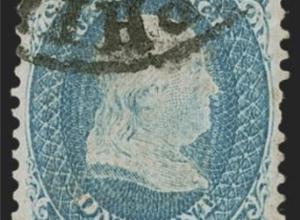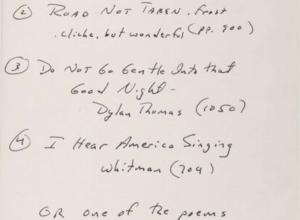Labor Day from a Bookseller's Perspective: An Interview with Lorne Bair
Yesterday was Labor Day, a holiday founded in the aftermath of the Pullman Strike to celebrate "the social and economic achievements of American workers." It has since become synonymous with the last weekend of the summer, a final time to light the barbeque and visit the lakeside cabin before the kids go back to school. Over the weekend, I interviewed Lorne Bair, a bookseller specializing in the history of labor and social movements, about his impression of Labor Day and his thoughts on building a Labor Day book collection:


Does Labor Day have any extra significance to you as a bookseller specializing in social movements and labor history?
Interesting you should ask, because, you know, Labor Day is a strictly American phenomenon and, in a sense, it's an invention of Capital, not Labor. Labor Day had been celebrated unofficially by workers' groups as early as 1882, beginning in New York City, but the firstofficial (i.e. government-sanctioned) celebration of Labor Day in the U.S. was in 1894, the result of a bill sponsored by President Grover Cleveland. Cleveland had spent that summer breaking the Pullman Railway Strike, probably the largest and certainly among the most violent labor conflicts in America up to that time. It was a huge strike, involving something like 70% of the entire American railroad workforce (something like a quarter-million workers!), and it was a just strike -- George Pullman was notoriously anti-Labor, and a terrible prick; looking back, it's hard to take his side in this conflict no matter how you feel about organized labor! What you need to know is that all Pullman employees were required to live in a planned community, built by Pullman himself -- it was called Pullmantown, and it was on the outskirts of Chicago. Workers had to live in Company housing, and they had to buy their food and dry goods at Company stores. So, earlier in 1894, in response to lost revenues as a result of the Panic of 1893, the Pullman Company had begun laying off and cutting the pay of its workers. "Fair enough," you might say -- after all, there was less product being built -- but at the same time the Company decided to raise the rents on workers' company-owned houses and to raise prices at the company-owned stores! Remember: the workers had no choice in the matter; many were already in debt to the Company, so they couldn't even leave! The workers sought to negotiate, and even invited arbitration - but Boss Pullman would have none of it! Real robber baron stuff. So the workers struck, and then the ARU -- the American Railway Union -- struck in sympathy, crippling the railways and instantly tanking the country's recovery from the 1893 recession. It was a great strike, and it would certainly have succeeded had the National Guard, under Cleveland's orders, not sided with Company thugs to help break it.
Anyway, the mid-term election campaigns of 1894 happened to coincide with the end of the Pullman strike, and the Democrats realized they were going to lose a lot of seats if they didn't figure out a way to get Labor on their side, quick. So right after the strike was broken they rushed through the bill that established Labor Day. It didn't do much for the Democrats in 1894, and Cleveland's political legacy was pretty much repudiated in the Presidential election of '96, but the holiday stuck. So that is where Labor Day comes from!
I would point out that, beginning in 1886, most Americans celebrated "labor day" at the same time as the rest of the world -- that would be May 1st, May Day, which is still widely celebrated as the International Day of the Worker. Problem is, that "labor day" was established to commemorate the martyrs of the Haymarket Massacre of 1886, and has always been associated with radicalism and revolutionary change -- not a legacy that American civic and political leaders wished to perpetuate in the American memory, especially not on the heels of a large and violent strike! So one of the imperatives behind the official establishment of thenew Labor Day was to de-radicalize the celebration of American Labor; to detach the movement from its revolutionary roots. So most radicals I'm acquainted with have their realcelebrations on May Day and think of Labor Day as sort of a dark footnote to labor history. Because, what the day is really celebrating is the triumph of Capital over Labor, right? It should be called Pullman Day!
One interesting side-note: the Great Pullman Strike of 1894 is also the event that put Eugene Debs, then head of the ARU, on the map as a national figure. Even better, as a result of his famous intransigence in that strike, he was thrown in jail for 6 months -- he spent that 6 months reading Marx, and emerged a committed Socialist, probably the greatest socialist leader we've had in this country. He ran for President 4 times.
If someone wanted to build a Labor Day book collection, what would be some key titles to include? I wonder too if there is enough Labor Day material to build a collection around or if it would necessarily dovetail into a labor history collection, or, alternatively, a U. S. holidays collection. I think the intersection of the two is interesting, but I'm not sure what's out there...
Well, yes, I think a Labor Day collection could be very interesting indeed, whether on its own or as part of a larger group of material. A particularly interesting approach, it seems to me, would be to juxtapose two collections: the literature that has grown up around May Day versus that of Labor Day. The first would (or could) be a much larger collection, since May Day is internationalist in nature and has generated a great deal of iconography in nearly every culture except our own. Labor Day on the other hand, being a quasi-patriotic holiday, but one with such an interesting (if flawed) origin, has generated comparatively less literature, much of it rather tepid at that. What I would look for would not be books -- there are relatively few relating to Labor Day itself, and there are are rather tepid -- but rather the rich and often very regional genre of ephemera that the holiday has produced. Of particular interest would be material pre-dating the "official" government sanctioning of the holiday. What would I look for? Well, Labor Day from the beginning has always been a great occasion for parades, concerts, and public speechifying, so I would keep my eye out for broadsides, photographs, postcards, posters, concert programs, menus -- anything that reflected the real interaction of the American working class with this holiday that had been established just for them. Here's the kind of thing I mean, courtesy of Duke University's Special Collections:
Or, another example, recently sold at auction - I like this one because it combines a sort of Ideal Worker iconography with the sort of patriotic top-down rhetoric you (thankfully) don't hear much anymore. I mean, that tag line -- "All Right Thinking Americans are Constructive Workers" -- sheesh. It brings chills:
So, yes, there's simply tons of material out there - not books, necessarily, but ephemera, graphics, and other non-traditional material and print culture -- and one could make a really stunning collection out of it. As far as I know, no one is really doing so - at least, not among my customers. I never get requests for "Labor Day" material (whereas I get many, many requests for May Day material). Which says to me that it's a wide-open collecting niche, just the sort of thing I'd be looking for if I wanted to assemble an interesting collection that hadn't already been "done" to death!
Another interesting place to start would be to collect the literature and ephemera of the Pullman Strike itself, and that is certainly a colorful area to collect! The 1890s were already an era of sensational publishing and yellow journalism, so as you might imagine the strike practically spawned a publishing industry of its own. Dozens of books - none of them especially worthwhile from an historical standpoint - and hundreds of pamphlets, magazine articles, leaflets, broadsides and other little bits of ephemera -- were produced between 1893 and 1895. I think my favorite Pullman-related item is a little book by H.H. Van Meter called The Vanishing Fair : A poem about the destruction by fire of most of the Exposition's buildings during the Pullman Strike of July 1894 (Chicago: Literary Art Co., 1894), about the destruction of the Chicago World's Fair grounds, one of the less felicitous after-effects of the strike. It's a nicely printed, thin quarto volume, filled with sensational illustrations and some of the most horrid poetry you can imagine. It is exceedingly uncommon; I've only had one copy, and that was some years ago - but I always keep my eyes open for it! If one wanted a semi-reliable contemporary account of the strike, its antecedents and its aftermath, I would probably recommend William Carwardine's The Pullman Strike (Chicago: Charles H. Kerr, 1894) -- reliably pro-labor, and issued by a socialist publishing house, so undoubtedly a little biased. But trust me -- the pro-Company accounts are worse! They're simply lies. Interesting lies, maybe, but lies nonetheless; you really can't believe a thing they say!
That said, there was published in 1893, before the strike, an exceedingly interesting (and now nearly unprocurable) little volume by a Mrs. Duane Doty, called The Town of Pullman: its growth with brief accounts of its industries (T.P. Struhsacker, 1893). This was a company-sponsored (so obviously decidedly pro-Pullman) account, but it is important for offering a detailed portrait of the architecture, social hierarchy, and economic structure of one of America's first full-scale company towns. It included a folding plan. I've sold one copy in my career, but a very nice reprint was done in the Seventies which can be had for not too much money. It's an interesting read.
And then, of course, there's the whole government angle: it's been traditional for Presidents to issue Proclamations on Labor Day, usually some sort of lukewarm endorsement of organized labor and all it has done to make America Great (after all, right thinking Americans are Constructive Workers...). Most of them have been published in some form, often as pamphlets by the Government Printing Office...wouldn't a substantial run of these make for interesting comparisons? (note I didn't say "interesting reading"). And, though I've never seen it or sought it out, there must have been some print and/or manuscript culture that devolved from the Cleveland administration during the process of founding the first Labor Day. I'd look for that, and for any House & Senate speeches that may have been published, for or against. Congressmen were always printing up their speeches to distribute among their constituents back home, to make it look like they were busy during their months in Washington.
As you can see, I could go on all day, but I won't. My basic feeling about collecting is that practically any subject area, no matter how seemingly obscure or ephemeral, generates a sufficient print culture that one can construct a meaningful, fascinating, and informative collection around it. This is the sort of collecting I try to encourage my customers to do -- because as I've said elsewhere, history begins on the ground, with someone picking up a scrap of paper and then going on to make it mean something. And that act of discovery is a function that collectors perform that no one else in society performs! It's important, and inspiring, and it's why I continue to do what I do.

















